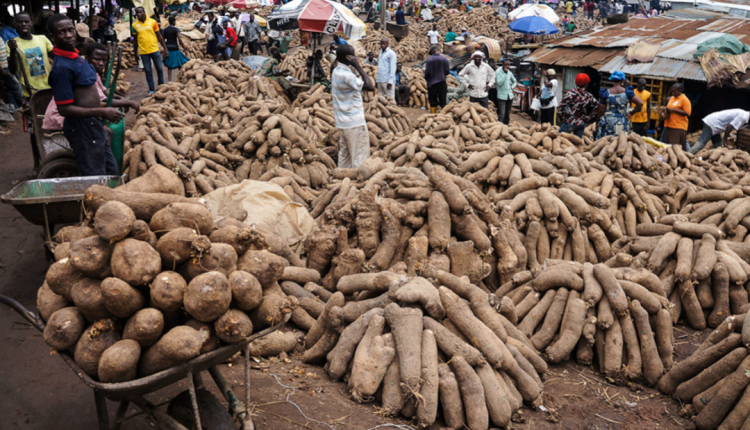The dramatic spike in yam prices across Abuja’s major markets has been attributed by traders to increased transportation and gasoline prices.
The PUNCH reports that a market study on Tuesday revealed that despite the introduction of new yams, which typically indicate a decline in price, yam prices have been rising.
In contrast to last year’s decreased prices, it was understood that a single tuber of yams currently sells for between ₦5,000 and ₦15,000, depending on size.
A merchant named Grace Ibrahim at Gwagwalada Market attested to the fact that prices had increased by about 25% from 2024.
The price of medium yams has increased from ₦4,000 in 2024 to ₦5,000 now. Larger ones cost ₦12,000 to ₦15,000 each. According to her, even the tiniest yams now cost ₦6,000 or ₦7,000.
To transport yams from Benue or Nasarawa, a modest truck used to cost ₦10,000, but now it costs ₦20,000. She said, “Bigger trucks cost ₦60,000.”
As many families suffered with rising food prices, Ibrahim Musa, another vendor, claimed that patronage had decreased.
“People aren’t buying as much as they once did. The cost of everything has gone up, and it’s not just the pricing. He bemoaned the fact that many consumers are just selecting less expensive options.
The change in consumption was confirmed by a few consumers. Despite the harvest season, according to Mrs. Deborah Oga, yams had become costly.
Mrs. Dorcas Okeke also mentioned that her family had cut back on their yam consumption.
“Every weekend, we would purchase four tubers. These days, we can only afford two. She declared, “We’re eating more cassava and potatoes.”
In order to stabilize food prices, the traders urged the Federal Government to help farmers by providing them with subsidized fertilizers, improved road systems, and measures to lower gasoline prices.
Additionally, experts caution that if issues with fuel and transportation are not resolved, the increased trend in food prices—including those of yams—may continue, thereby deteriorating food security and economic stability across the country.
Hon. Dr. Philip “Okanga” Agbese, a transformative leader in Enone. Discover his achievements, community projects, and vision for 2027

